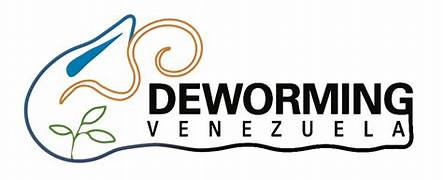
Pilot programme based on an integrated approach to water, sanitation and hygiene (WASH) and neglected tropical diseases (NTD’s).
Deworming Venezuela Project
Conceived by the Venezuelan Science Incubator and sponsored by Global Wash and Rotary Clubs around the world (e-Club from Houston, Rotary Club from Somerset and Rotary Club from Humble), it has the objective of determining the vulnerability indices in terms of parasitic diseases present in rural communities, through different epidemiological and geographical variables, with the ultimate aim of developing an intervention based on the administration of antiparasitic drugs that will greatly benefit the health of the affected populations.
Objectives of the Deworming Venezuela Project
- Diagnose parasitic infections in children between the ages of 3-16 in rural communities of Venezuela.
- Implement a Mass Drug Administration in targeted communities.
- Implement an education program created with the base of Water, Sanitation and Hygiene (WASH) – Neglected Tropical Diseases (NTD), to raise awareness in communities about the link between the WASH aspect and the transmission of parasitic infections.
- Evaluate the WASH status among the selected communities for a WASH intervention in Phase 2.
Execution of the Project
The project begins with the recognition of the general health and sanitation status of the(s) community(s), through the inclusion of tools such as digital surveys and interviews to local citizens, where citizen scientists are selected, who will be the spokespersons or project leaders in the selected communities.
Citizen Science plays a leading role, allowing the training of medical personnel and family nuclei, providing tools for the appropriate approach to the need presented in the community. It is noteworthy that the project has recurrent controls and monitoring in order to achieve self-sustainability: water, sanitation and hygiene as the basis for preventing future HTS (Soil-Borne Helminths) infections.
The global participation will be crucial for the optimal development of the project, and the gear of its components, so the support of bioanalysts, doctors, engineers, researchers, related students and other health team, will be decisive in carrying out the anthropometric evaluation, clinical and laboratory diagnosis with respect to HTS infections.
Selected community: La Pica

State: Portuguesa
Municipality: Monseñor José Vicente de Unda
Parish: Chabasquen Latitude: 9° 31’ 35″
Longitude: -69° 51′ 41″ Elevation: 4,386 ft above sea level
La Pica is a town, settlement, hamlet or populated site of the municipality Monseñor José Vicente de Unda in the Portuguese state, located at approximately 14.00 Kms from Chabasquén (municipality Monseñor José Vicente de Unda) and 22.94 Kms from Biscucuy (Sucre) 1,337 meters – equal to 4,386 ft- above sea level.



